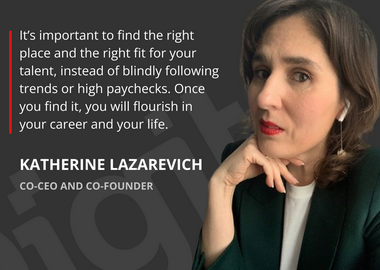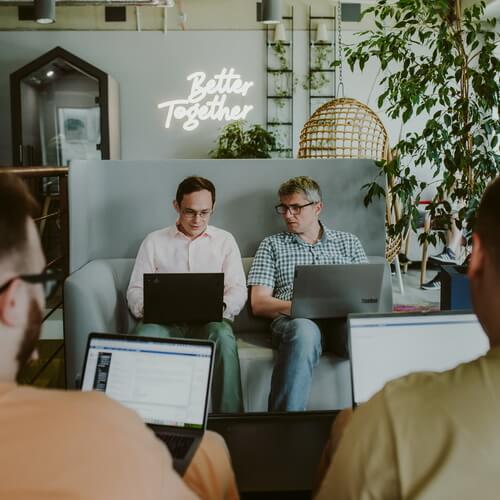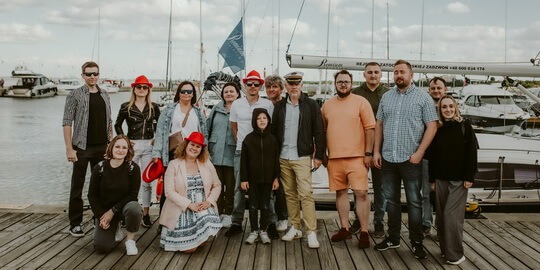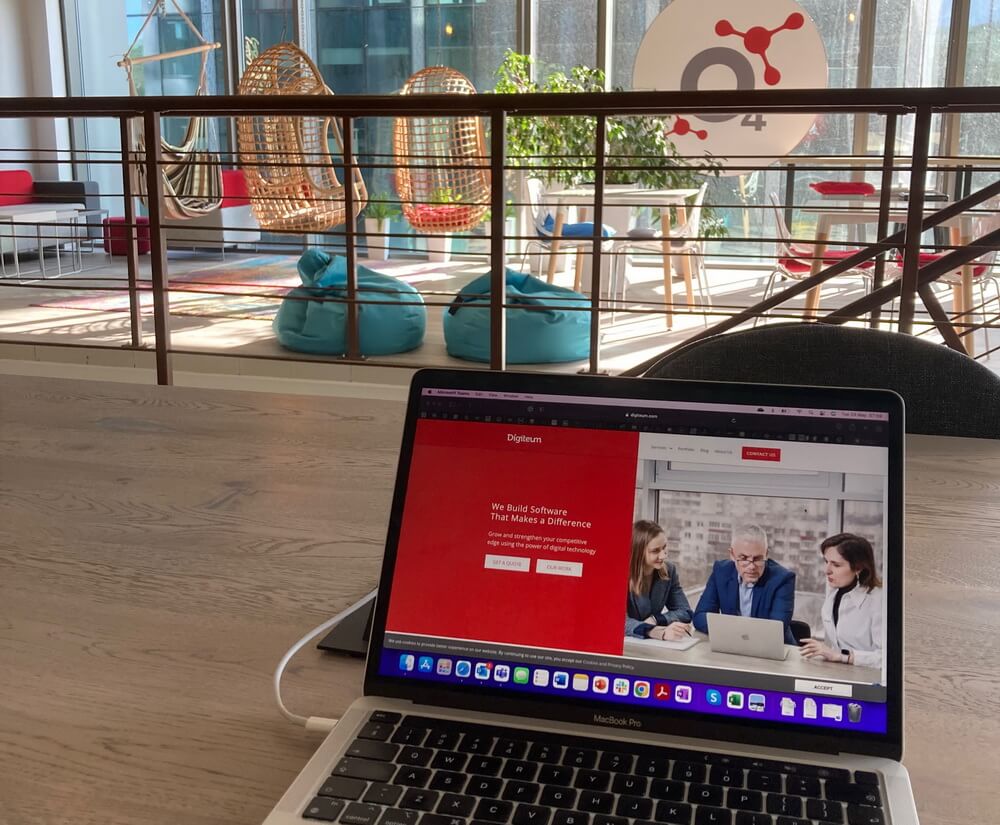Her Journey, Our Values: Digiteum co-CEO Inspires Equality and Inclusion in IT
Company culture is not about free cookies in the office kitchen. Or a generous social package. Or even corporate events with bikes and fancy branded stands.
Company culture is a foundation that rests on the experiences, beliefs, and values of its people. When you join the pod, you bring your baggage and enrich the environment with your vision and unique perspective. But at the very core, the culture is shaped by those who lead it.
This story is exactly about that. We talked to Digiteum co-CEO and co-founder Katherine Lazarevich about her adventurous career journey in IT and how her own experiences impacted the formation of the equal opportunities principle in our organization from day one. Long before it appeared on everyone’s agenda.
Katherine, how did you start your journey in IT?
I can’t say that I have always dreamed of connecting my life with IT. I wanted to become a lawyer, a traveler, a doctor. And, to be honest, back in the early 2000s, people had a very vague idea of what IT was. But I was always keen on maths and physics.
Originally, I was admitted to the medical university and even got my student ID. Until my elder brother who was already working in IT nudged me to consider other options. He showed me around his workplace, which was like a boys’ club (probably not the best idea to introduce IT to a 17-year-old). However, after giving it a good thought, I switched to tech university to study computer science and engineering.
It was a hard choice, I had doubts. But very soon I realized just how lucky I was. First of all, because I found my community. The people I met at the university became my best friends for life. And I met my future husband Viktor there.
Plus, we had a very progressive young academic staff. So we could learn from experienced engineers who were actually building software.
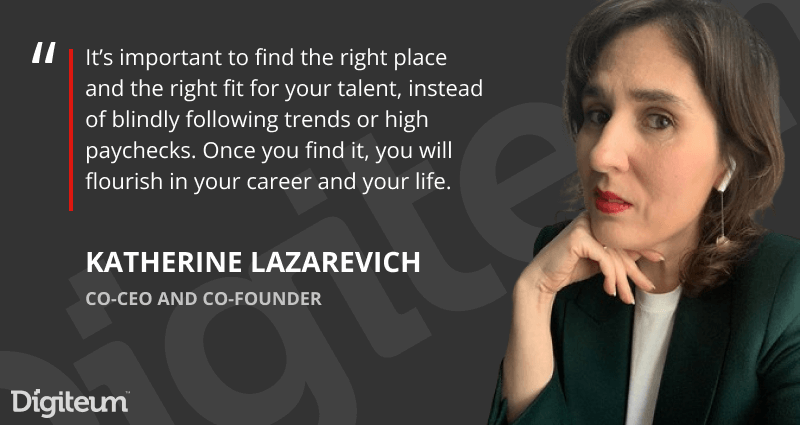
What were the major milestones in your career?
I started working while still studying at the university. First, as a manual QA, then as an engineer. And I always had a knack for organizing things, putting on events, connecting with people.
The first milestone was landing an engineering job at Intetics. This is where I met Michael and Julia with whom we co-founded Digiteum and work to this day.
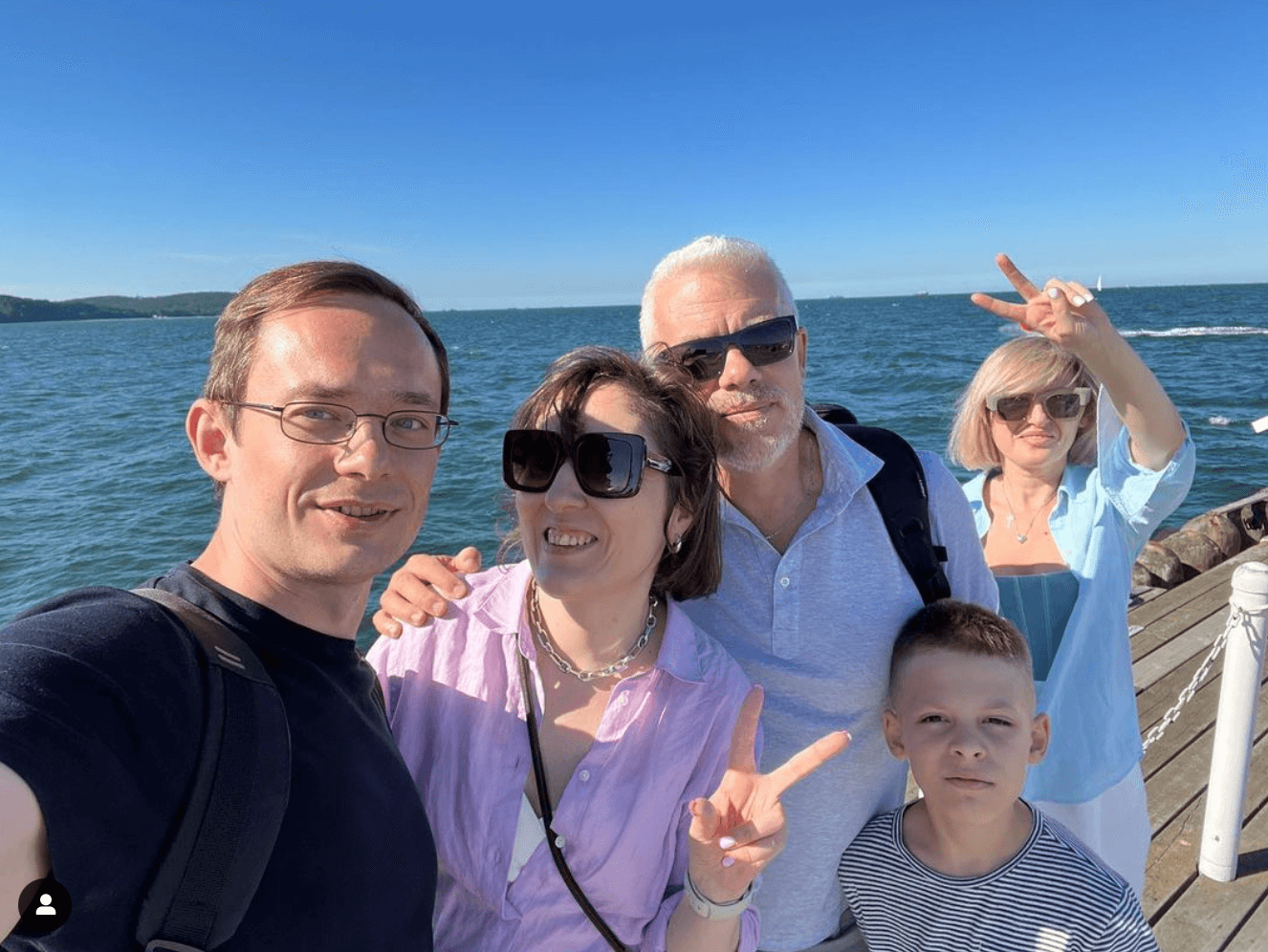
The second was joining a project where I had to wear many hats – QA, project management, engineering, prototyping, and whatnot. This was the moment I discovered my drive. Even though I was trained as an engineer, I realized my real passion lies in leading projects — managing resources, conceptualizing a product, and connecting people. It was such an inspirational experience.
I was working directly with the client Marс Pitre. He is a UX devotee, always eager to share his experience and insights. He even brought me a bunch of books from the US when visiting us at the office.
And so my journey at Intetics took a turn from engineering to project management to PM Director.
Working with Herman Klein on one of our major projects for Adorama Camera also had a huge influence on my career. Herman has always been a visionary Product Owner with a strong focus on business and a big-picture vision. I picked up a lot of PO experience from him.
Have you ever felt bias in such a male-dominated space?
I got a taste of discrimination firsthand early in my career. We were applying for jobs at the same companies together with my husband who was also a software engineer then. Same companies, different responses. Often, I didn’t even get a screening. Or had to go through mock interviews. And some companies openly said they didn’t want to hire women.
This was a traumatic experience. Not only for me but also for my husband who, seeing all that, only firmed his stance against gender bias and refused to go for interviews unless we both got the call. This experience paved the way for how we approach equality and equal opportunities at Digiteum.
Ironically, after working at Intetics for some time, I learned that our story turned into a tale of how the management hit a jackpot by hiring both Viktor and me. Along with acquiring a talented engineer, they also discovered a Project Manager nugget. Double win.
How do you guarantee equal opportunities at Digiteum?
We assess people based on their skills. I learned the hard way how unfair it is when people judge you by your gender. And it relates to not only gender but every other aspect like age or cultural background. That’s why the principle of equal opportunities is ingrained in our company culture. I’m involved in many processes directly and make sure it applies to everything we do.
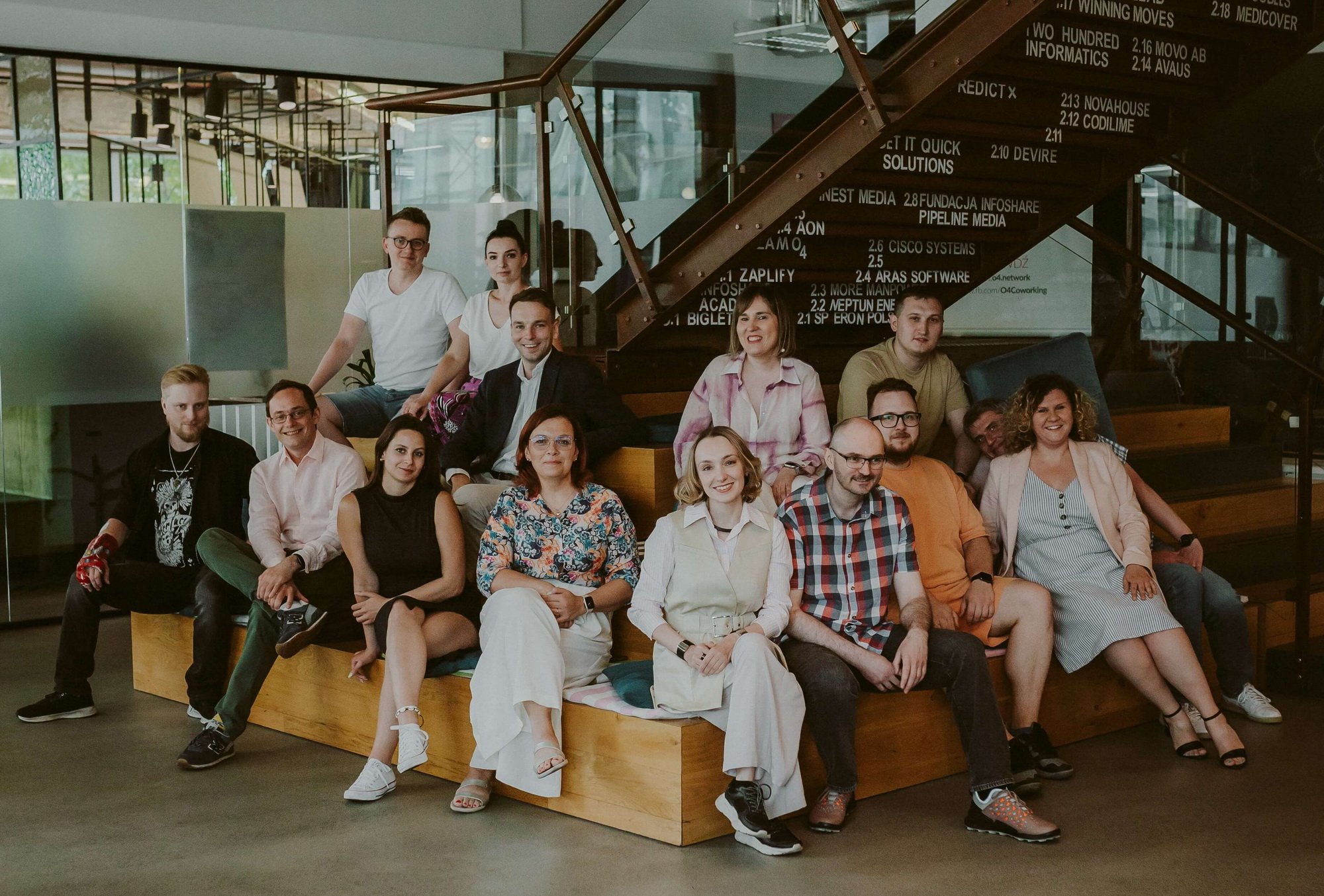
When we hire people, we assess their skills, experience, talent, and fit for the role. If a candidate doesn’t match a certain position, we openly discuss why and share our reasons. But of course, we have practical limitations like hiring people only in certain locations for legal reasons.
You co-founded Digiteum in 2010. How did the evolution of Digiteum impact you as a professional?
Our business transformed during this decade, and so did we. We caught up with every wave from the era of mobile applications to chatbots to IoT. I was always curious to try new things. I remember installing every new mobile app on my phone to test it and fiddling with platforms for building chatbots.
Then, we moved to the global markets and became an international team. This impacted and enriched our culture bringing new viewpoints and approaches to business communication.
We were lucky to witness the evolution of IT. I still remember the time when the Internet was becoming mainstream, the sound of the dial-up. And now we have AI writing documentation for us. What a time!
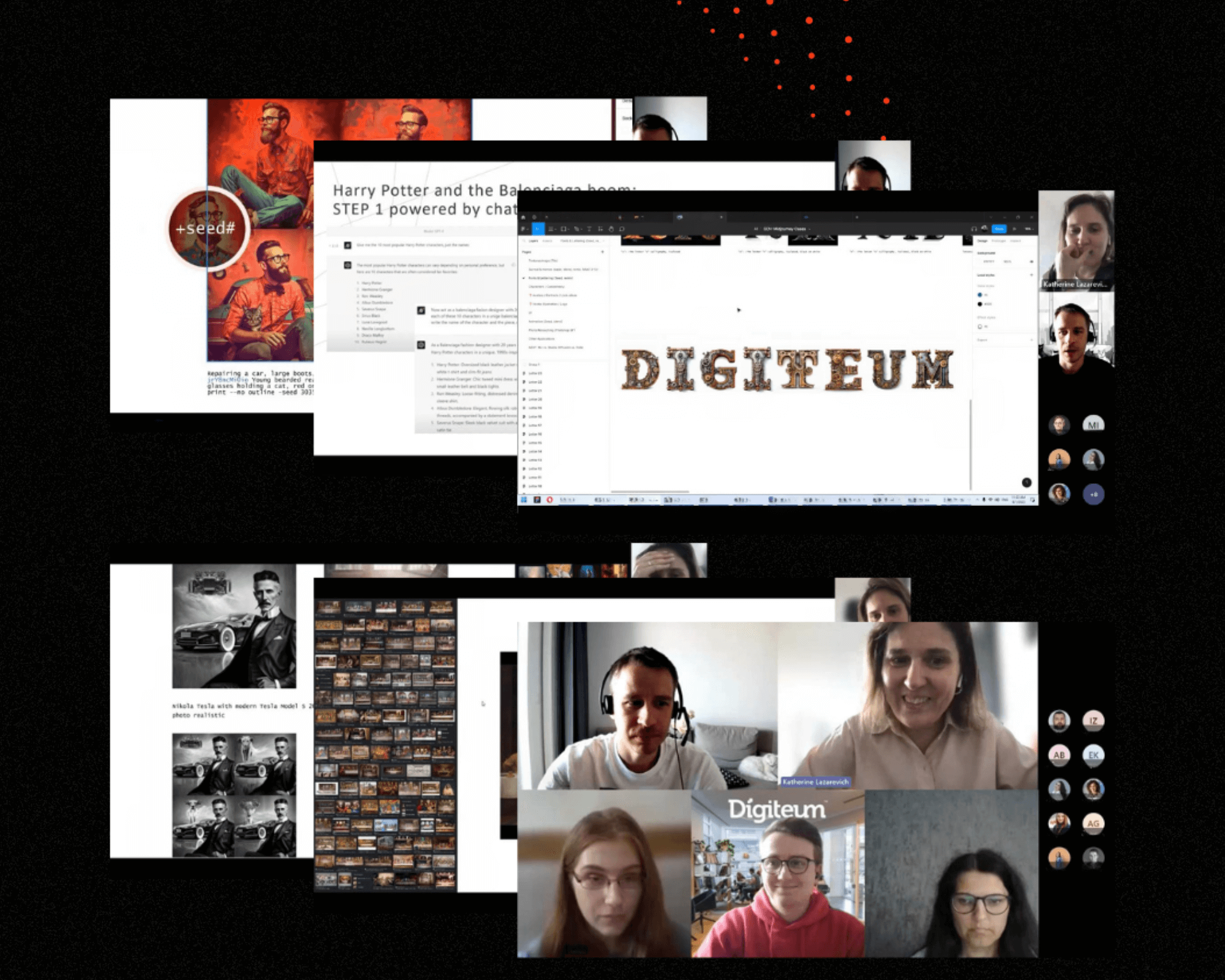
What is the hardest thing to deal with when leading an IT company?
Sometimes you have to make complex decisions you don’t want to make. Or you find yourself in a scenario you were not prepared for — they don’t teach you everything at school.
I love challenges that you can solve. I even find it exciting when, for example, there’s a challenge on a project and your goal is to find a solution. But there are situations when you feel helpless. Situations that impact your people and your business, but there’s nothing you can do. Yet you are still responsible.
And then there’s also responsibility for the decisions other people in the company make. How do you handle that?
You learn to let go. It’s not always easy to delegate, because your people work and talk on behalf of your company, in other words, on behalf of you.
My word means a lot to me, and I don’t just throw it around. When we are hiring, for example, I always openly talk about what candidates should expect from the role. Recruiting agencies we used to work with assumed I was not “selling it enough.” But I am not selling anything, I’m telling the truth.
What personal qualities help you succeed as a tech leader?
First, willing to learn. This has always been my driving force. You either evolve or degrade. I was always excited about learning new things, testing new technologies myself, and finding ways to implement them for the benefit of our clients and their businesses.
Empathy is another important quality not only in IT but in any industry. I believe everyone in the company must embrace empathy and learn to listen to and understand people. It may seem that we work with technologies in IT but, in reality, we work with people, and for the people.

What would you advise the young ladies who now study STEM and begin building their careers in science and tech?
The IT industry is huge. There are countless opportunities to apply your talent. You heard my story – you never know how things may turn out. And it’s important to find the right place and the right fit for your talent, instead of blindly following trends or high paychecks. Once you find it, you will flourish in your career and your life.
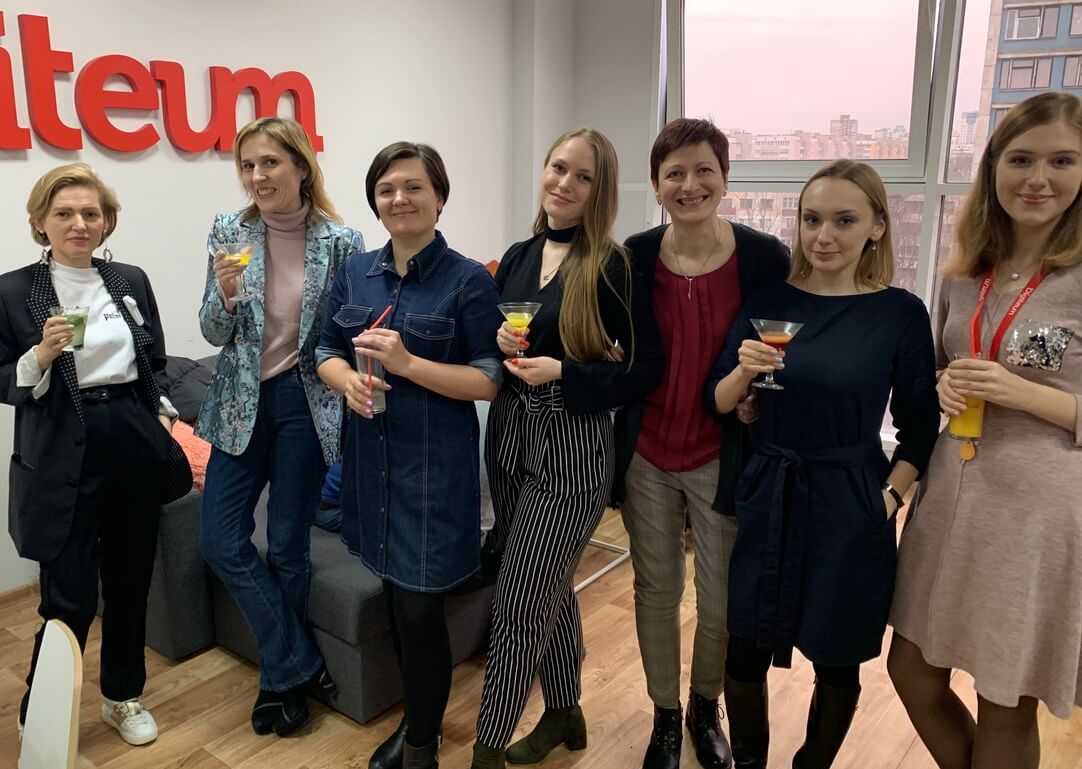
Well, this is exactly the type of advice you would frame and take a look at now and then to make sure you are on the right path.
Massive thanks to Katherine for sharing this powerful story. We were always proud of having a diverse management team half of which are talented women in tech. But this story brings it home. Meaningful change can start small as a principle for one person and scale to become the core value of an entire company.


